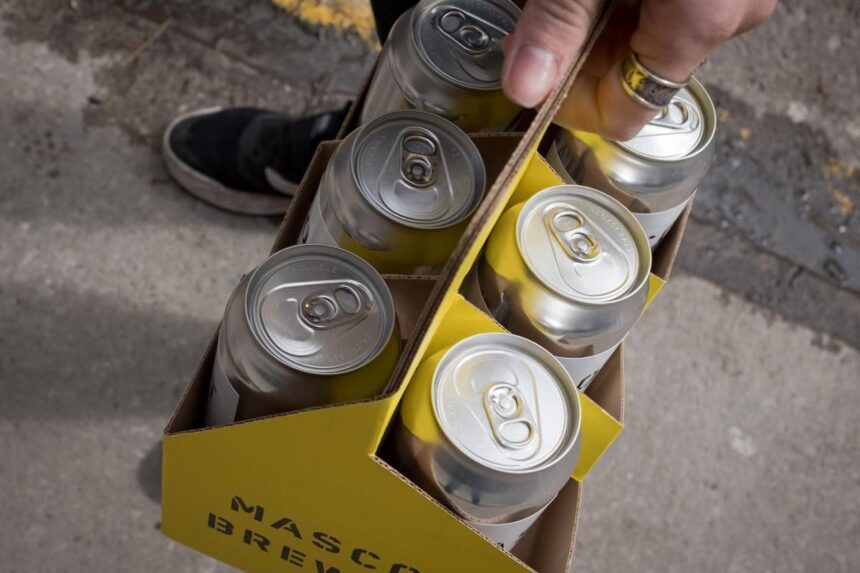In a pioneering move that could reshape consumer awareness across Canada’s alcohol industry, Antigonish-based Half Cocked Brewing has launched an experiment that places health warning labels directly on their beer cans. This small-town Nova Scotia brewery is stepping into territory where major alcohol producers have historically feared to tread, implementing transparent health messaging that explicitly connects alcohol consumption to cancer risk.
“People should know what they’re consuming,” explains Jacob Euson, co-founder of Half Cocked Brewing. “Just like cigarette packages have warnings, alcohol should too. We believe in transparency with our customers.” The bright yellow labels now appearing on the brewery’s products clearly state: “The Chief Medical Officers of Health of Canada recommend no more than 2 standard drinks per week to reduce your risk of alcohol-related harms, including 7 types of cancer.”
The initiative comes amid growing scientific consensus about alcohol’s health impacts. According to Canada’s health guidelines updated in 2023, even moderate alcohol consumption carries measurable health risks. These revised guidelines dramatically reduced recommended limits from 15 drinks per week for men and 10 for women to just 2 standard drinks weekly for all adults.
The brewery’s bold move stands in stark contrast to the resistance shown by major industry players. When similar warning labels were tested in Yukon in 2017, the pilot program was quickly halted after pressure from alcohol industry associations, who cited concerns about “incomplete information” being presented to consumers.
Tim Stockwell, a scientist with the Canadian Institute for Substance Use Research who led the Yukon study, praises Half Cocked’s initiative. “This is exactly what we need—courageous small producers willing to challenge industry norms. Our research showed these labels significantly increased consumer awareness about alcohol’s health risks.”
Half Cocked’s experiment has already sparked conversations among local businesses and health advocates. Dr. Mohammed Al-Hamdani, executive director of the Responsible Gambling Council in Toronto, believes the initiative could become a model for responsible marketing nationwide. “We’re seeing a cultural shift where consumers increasingly demand transparency about what they’re putting in their bodies.”
The brewery reports that customer response has been predominantly positive, with many expressing appreciation for the honest approach. “We haven’t seen any negative impact on our sales,” Euson notes. “If anything, it’s strengthened our relationship with customers who value our commitment to their wellbeing.”
The voluntary adoption of health warnings by this small Nova Scotia brewery raises important questions for provincial and federal regulators. While mandatory health warnings on alcohol remain absent in Canadian politics, Half Cocked’s experiment may provide valuable data on how such measures could be implemented more broadly.
As consumers become increasingly health-conscious, will other Canadian breweries follow Half Cocked’s lead, or will the alcohol industry continue resisting transparency measures that have become standard in other sectors? The answer may determine whether Canadians will soon see health warnings on all alcohol products, or if this Nova Scotia experiment remains an isolated case of corporate responsibility in an industry traditionally reluctant to acknowledge its products’ health implications.









